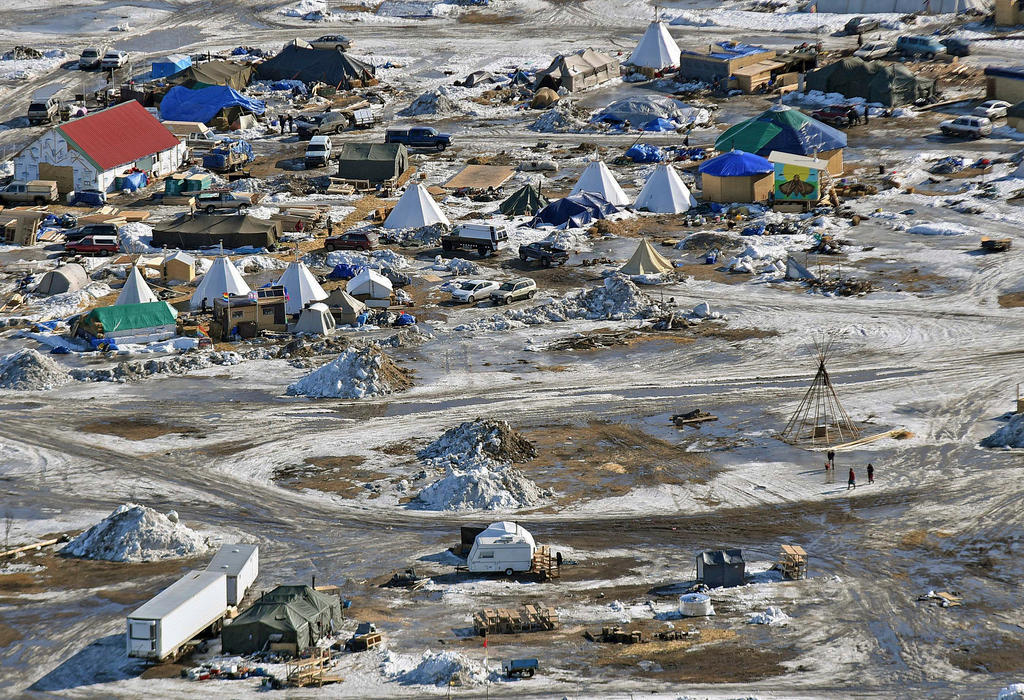Geneva protest over Credit Suisse’s alleged Dakota pipeline funding

Around 100 people demonstrated outside the Credit Suisse offices in Geneva on Thursday attacking the Swiss bank’s alleged funding of firms involved in the controversial Dakota Access oil pipeline project. The bank denies the allegations.
‘Trump is destroying the planet, Credit Suisse is an accomplice’ read one of the banners being waved at the demonstration in central Geneva on Thursday, organized by activist groups, unions, left-wing parties and Greepeace Switzerland.
The campaigners called for investors like Credit Suisse to stop funding firms involved in the US pipeline. US President Donald Trump supports the project, claiming it would provide better connections between Dakota oil producers and refineries on the Gulf coast. However, opponents criticize the fact it is due to run through traditional grounds of Sioux native Americans, with fears it could pollute the water table in the region.
Greenpeace has sharply criticised Credit Suisse for funding companies involved in the controversial project. The NGO told Swiss public television SRF last month that the Swiss bank is a prominent bankroller of the proposed pipeline. According to research from pressure group Food & Water Watch, Credit Suisse has financed three firms involved in the project to the tune of $340 million (CHF342 million). The NGO also believes Swiss rival UBS is involved to a similar extent, according to Swiss public television SRF.
Ongoing protests over the pipeline have put other European banks off the project, the news programme, 10 vor 10, said in a report last month. But Greenpeace has uncovered documents that Credit Suisse, along with other banks, is involved in an $850 million financing project that includes Dakota Access partner firm Energy Transfer Equity. It is not clear how much of the $850 million has gone to Dakota Access, and Credit Suisse has declined to comment on this point.
Greenpeace spokesman Thomas Mäder told 10 vor 10 that Credit Suisse had said, during a meeting last December, that it played only a minor role in the oil pipeline. Mäder now believes that these comments were mere “lip service”.
In a statement last week, Credit Suisse denied participating in the financing of the pipeline. “The criticisms raised in this context are false and strongly rejected by the bank,” it stated. Credit Suisse told 10 vor 10 that it complied with guidelines set down by the United Nations and the World Bank when assessing the risk of financing sector specific projects.
Greenpeace Switzerland, however, “maintains version of the facts and calls on the bank to justify its denials”, it declared.
The pipeline project is estimated to cost a total of $3.8 billion, but has been slowed by a series of appeals and protests. However, since Trump’s arrival in the White House, work has been accelerated. At the beginning of February, the US army granted the final permit to complete the pipeline.

In compliance with the JTI standards
More: SWI swissinfo.ch certified by the Journalism Trust Initiative

You can find an overview of ongoing debates with our journalists here. Please join us!
If you want to start a conversation about a topic raised in this article or want to report factual errors, email us at english@swissinfo.ch.